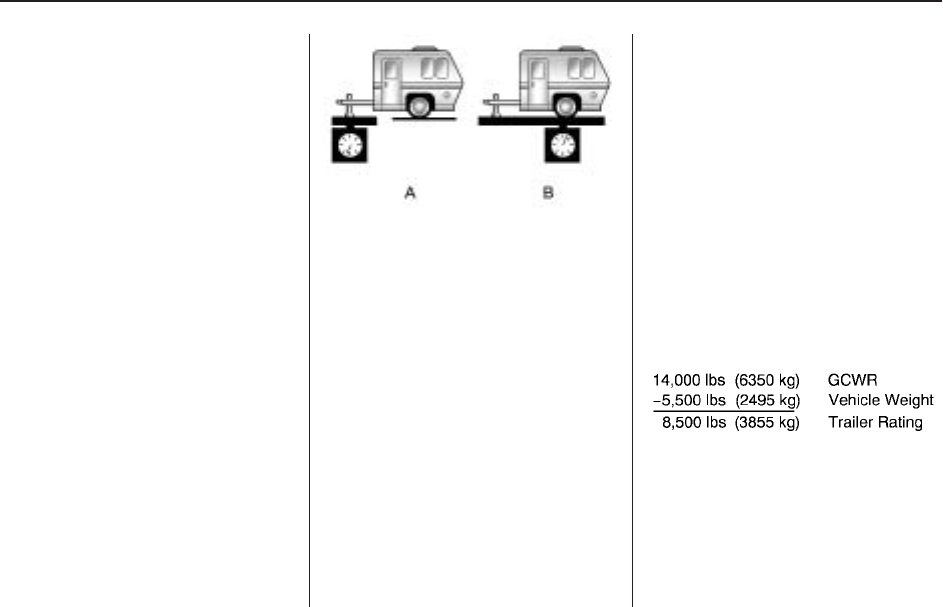
Weight of the Trailer Tongue
The tongue load (A) of any trailer is
an important weight to measure
because it affects the total gross
weight of the vehicle. The Gross
Vehicle Weight (GVW) includes
the curb weight of the vehicle, any
cargo carried in it, and the people
who will be riding in the vehicle. If
there are a lot of options, equipment,
passengers or cargo in the vehicle,
it will reduce the tongue weight the
vehicle can carry, which will also
reduce the trailer weight the vehicle
can tow. If towing a trailer, the
tongue load must be added to the
GVW because the vehicle will be
carrying that weight, too. See
Loading the Vehicle on page 4-28 for
more information about the vehicle’s
maximum load capacity.
For a weight-carrying hitch, the
trailer tongue (A) should weigh
10 percent of the total loaded
trailer weight (B).
After loading the trailer, weigh
the trailer and then the tongue,
separately, to see if the weights are
proper. If they are not, adjustments
might be made by moving some
items around in the trailer.
Trailering may be limited by the
vehicle’s ability to carry tongue
weight. Tongue weight cannot cause
the vehicle to exceed the GVWR
(Gross Vehicle Weight Rating) or the
RGAWR (Rear Gross Axle Weight
Rating). The effect of additional
weight may reduce the trailering
capacity more than the total of the
additional weight.
Consider the following example:
A vehicle model base weight is
5,500 lbs (2 495 kg); 2,800 lbs
(1 270 kg) at the front axle and
2,700 lbs (1 225 kg) at the rear
axle. It has a GVWR of 7,200 lbs
(3 266 kg), a RGAWR of 4,000 lbs
(1 814 kg) and a GCWR (Gross
Combination Weight Rating) of
14,000 lbs (6 350 kg). The trailer
rating should be:
Expect tongue weight to be at
least 10 percent of trailer weight
(850 lbs (386 kg)) and because the
weight is applied well behind the rear
axle, the effect on the rear axle is
greater than just the weight itself,
as much as 1.5 times as much.
4-38 Driving Your Vehicle


















